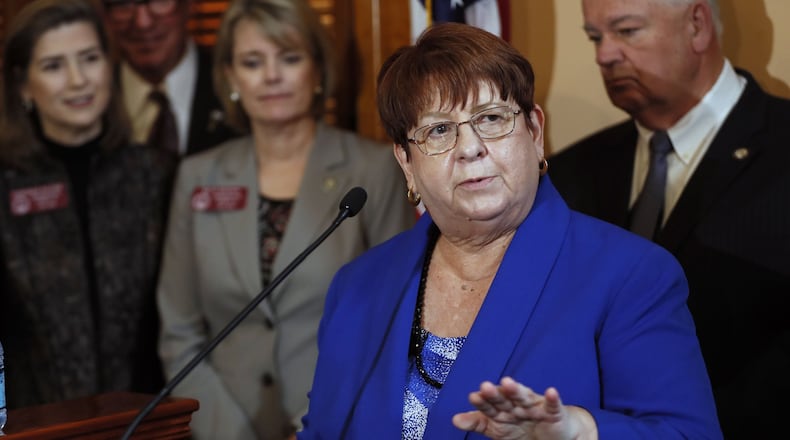Under the regional transit bill that earned final passage through Georgia's General Assembly late Thursday, Gwinnett County could hold a November referendum on joining MARTA.
That’s the only option this fall, but others also loom in the not-too-distant future — and that’s what Gwinnett Commission Chairman Charlotte Nash likes about it.
“From Gwinnett’s perspective, it gives us the type of flexibility that we had been hoping for,” Nash said early Friday morning. “ ... What we were trying to do is create and maintain options.”
Nash, who has called transit expansion Gwinnett's "next big decision," was heavily involved in the process that ultimately led to House Bill 930's passage shortly before midnight Thursday, the final day of the legislative session.
More from PoliticallyGeorgia.com: What bills will Gov. Nathan Deal sign into law?
Once signed by Gov. Nathan Deal, the legislation will allow 13 metro Atlanta counties, including Gwinnett, to impose a sales tax for up to 30 years to fund mass transit. It also creates a regional board called The ATL (or Atlanta Transit Link) to oversee transit funding and construction in that 13-county region.
For more than a year, Nash has expressed hopes for Gwinnett to have a referendum on some kind of transit expansion this November. Under the new legislation, though, the only option that could happen in that timeframe would be a vote on joining MARTA (which Nash contends that Gwinnett, as one of the original counties fingered for the system, has always had at its disposal).
The ATL board will not be officially created until Jan. 1, 2019, meaning the option for the 30-year sales tax it would offer won’t be on the table until then either. Officials have said that tax would provide a crucial long-term stream of income and likely help secure other types of funding too.
Nash shied away from explicitly saying what she thinks Gwinnett will or should do, stressing that the county commission as a whole “has got to make a decision about how we move forward.”
But she did say this: “Whether it’s November or it’s six months after November, it’s within sight now, in terms of the ability to hold the referendum.”
And she added this: “I feel no rush to get something done before The ATL is stood up. I’m not concerned about working through the process that will be set up through that agency.”
Even if Gwinnett voted to join MARTA, the likelihood of rail service being in the plans appears slim.
While briefing the commission last week, Gwinnett DOT director Alan Chapman said the county's comprehensive transit plan, which has been in the works for more than a year, was unlikely to include any kind of rail as a recommendation.
Bus rapid transit, a system of buses with dedicated lanes and fewer stops than traditional local routes, is likely to be the high-capacity option recommended. A BRT line could run in the Satellite Boulevard corridor on the north side of I-85 before eventually connecting to a "multimodal hub" on the western side of the county. That hub would, one way or another, connect to the existing MARTA station in Doraville.
Chapman cautioned that the version of the transit plan that he presented was not financially constrained and was comprised of several billion dollars worth of projects. But it also included expanding local bus service, more Express bus service to different parts of the Atlanta area and the addition of rapid bus service, which is different from BRT in that it doesn’t always operate in dedicated lanes.
About the Author
Keep Reading
The Latest
Featured




